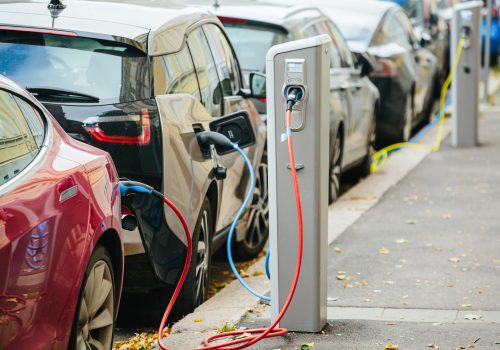DUBAI—There are different theories about how this city, the most populous in the United Arab Emirates, got its name. My favorite is that it came from an Arab proverb that says “Daba Dubai,” meaning, “They came with a lot of money.”
Dubai was established in the eighteenth century as a fishing village, where a good living could be made from trade and pearl diving. By the time the COP28 climate conference kicked off here, it had become one of the world’s richest cities, with the world’s tallest building and more five-star hotels than any city except London, the result of oil revenue, tourism, real estate, and sovereign investment.
Dubai was host to climate action over the past week, gathering almost one hundred thousand people from nearly two hundred countries. The public and private sectors drew closer than ever before to a consensus that addressing the perils of a warming planet was both a matter of urgency and business opportunity.
That does not fix the problem, but there is no solution without vast amounts of private-sector financing and investments in climate solutions from renewables to nuclear energy, and from decarbonization to green tech.
Many climate activists opposed opening the doors to industry, particularly those producing fossil fuels, but the result has been a flurry of unprecedented agreements that, if executed and sustained, have the potential for tens of billions of new dollars to address the climate crisis.
For example, there is the $700 million in loss and damage support for the Global South. There is also the $30 billion “Alterra” fund, launched by the United Arab Emirates—and with private-sector giants Blackrock, Brookfield, and TPG—whose aim is to generate $250 billion of capital by 2030 for climate investments in the Global South.
Some fifty oil and gas companies, including Saudi Aramco and twenty-nine national oil companies, agreed to reduce their emissions to zero by 2050 and to reduce methane emissions to zero by 2030. At other points of the convening, countries joined together in agreeing to triple renewables, also by 2030, and to triple emissions-free nuclear energy by 2050. Achieving both goals will require the participation of the private sector.
Negotiators are squabbling over the text of the final COP28 agreement. Politico reports that a draft it has seen has expanded to twenty-seven pages and includes five different options on how to manage disputes over “phasing down” or “phasing out” fossil fuels. The battle could get ugly before the conference closes on Tuesday.
Whatever the outcome, veterans of the UN climate process believe this year’s sharply increased level of private-sector engagement could be the game changer to address challenges beyond the capacity of governments alone. Says Jorge Gastelumendi, a veteran of sixteen COPs who runs the Atlantic Council’s Adrienne Arsht-Rockefeller Foundation Resilience Center: “After twenty-eight COPs, we have finally seen the private sector arrive in the climate space with full force and commitment. Without them, we will not be able to solve the climate crisis.”
Frederick Kempe is president and chief executive officer of the Atlantic Council. You can follow him on Twitter @FredKempe.
This edition is part of Frederick Kempe’s Inflection Points Today newsletter, a column of quick-hit insights on a world in transition. To receive this newsletter throughout the week, sign up here.
Further reading
Fri, Dec 8, 2023
EV adoption could drive collaboration for renewable energy in Turkey and GCC
Report By
Turkey and the GCC have ambitious environmental targets. Here is how a collaboration on renewable energy and EV adoption can help with achieving those targets.
Fri, Dec 8, 2023
Charting energy transitions in the Eastern Mediterranean and Arabian Peninsula
Report By
While Turkey and the GCC have different renewable energy motivations, they need to evolve and combine experience and resources for energy security and sustainability.
Fri, Dec 8, 2023
Ukraine in the EU would be a game-changer for Europe’s decarbonization drive
New Atlanticist By Théophile Pouget-Abadie, Francis Shin
Both decarbonization and Ukraine’s accession will require reforms to the bloc's internal decision-making processes.
Image: The 28th Conference of the Parties to the United Nations Framework Convention on Climate Change, which takes place on 30 November until 12 December 2023 in Expo City Dubai. Dubai, United Arab Emirates on December 1st, 2023. (Photo by Beata Zawrzel/NurPhoto)



